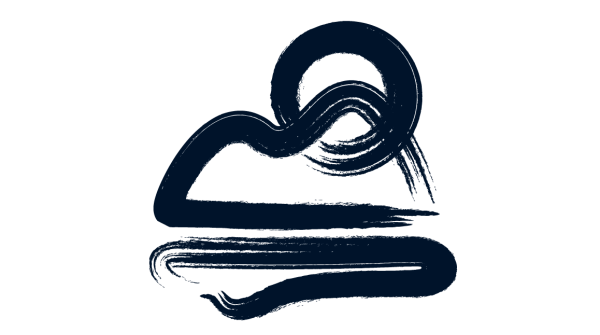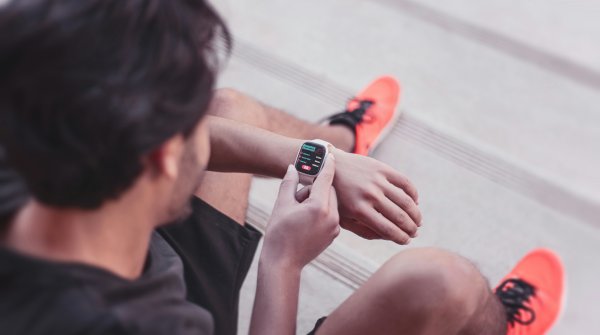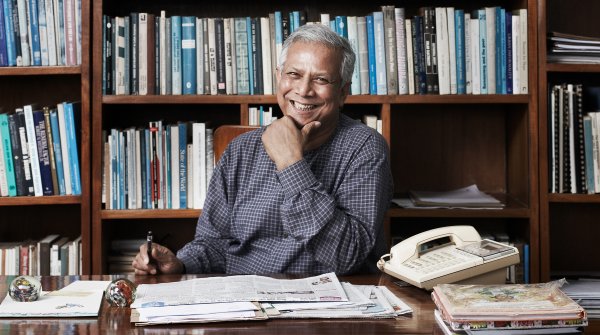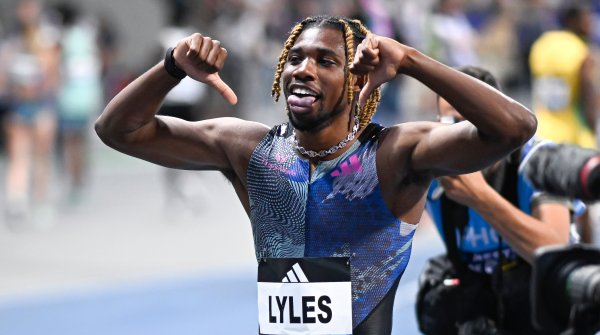- To start with, how was the last year for you?
- Your main sport is swimming. Do you have any other favorites?
- How does it feel for you to tell your story to others, like the sports world?
- What would be a message you would like to pass on to the international sports community?
- Imagine you could put something on the agenda of decision makers in sport, what would it be?
- Do you sometimes want to talk about something other than the difficult moments of your filmed story?
- How do you stay mentally strong and healthy in the face of global conflict? Do you have any tips?
- Has your story changed the way you look at the ups and downs of being an athlete?
- With your foundation, you support access to sport. Do you think sport should be a human right?
- When you look at the world of sport, what is missing?
It was really exciting! I have developed as a woman, learned to set my priorities and where I want to go in life. I also learned that there are no limits when you have big dreams.
Oh yes, I also really like synchronized swimming and tennis. And basketball of course, I used to play that myself. There are so many sports that I enjoy watching, for example Formula 1 or athletics. As a swimmer, I should hate running, but I love running, probably because I've been doing it since I was little. My father used to incorporate it into my swimming training. And even today I run 10 kilometers at least once a week.
I think about how I can convey them authentically and what message I want to get across. And that's important to me: my commitment to refugees and to sport. I love doing this because it's about my story and it's a privilege to share it and make the world a better place.
As an athlete, I would say: don't set yourself limits! I know it might feel like you've reached your maximum, but you sometimes have to think a little crazy to achieve goals like a gold medal or a new record. You have to think out of the box, even if your body says no at first. If your head says yes, your body will eventually follow. This mindset is amazing! It helps me a lot in my life, not just as an athlete.
Being a bit crazy and unique is absolutely great! We all think differently or maybe we even think the same, but that's why we're in competition. That's the beauty of life!
I am convinced that we should invest more in swimming. Because we all enjoy watching it and it is the second most popular sport at the Olympic Games. So why not promote it more, like soccer or Formula 1?
When I was sponsored by Under Armour, because of my backstory and my resilience, it was a really great experience and it also gave me the motivation to become a better athlete. It doesn't always have to be about medals, sometimes we choose athletes because of their story. I think that should happen much more often.
Sure, it's hard. I realized that at a young age and that's also the reason why I have many interests and things that I pursue in life. I'm now studying film studies, I'm in the fashion world and I dream of having my own fashion brand one day. Of course it's heartbreaking to tell my story over and over again. But I also know that I'm doing something good by giving a voice to those who can't tell their story. I may have fled, but I'm a normal person with dreams and ambitions who sometimes needs a break. But luckily I can tell when I need a break.
I do what all people do: When it gets too much, I cry, talk to my parents about it or to other people close to me. I get an ice cream and go for a walk, the normal things you do when you're sad.
Personally, I gather my energy from knowing that I have a platform and a voice that many people listen to. It gives me strength to know I could influence their opinion. My work is not just about telling a story, but about how people perceive refugees and how they receive refugees in their countries. That is also what we do with the foundation.
I hope that we can help as many refugees as possible with education and sport. Big brands and companies can in turn help us to achieve more. So let's work together to make the world a better place!
When I was nine, it was all about winning. Swimming and gold. Swimming and gold. But life isn't just about winning or losing, it's about growing and learning. I learned that the hard way, but it was definitely worth it!
Yes, absolutely! For me, it was what helped me survive when the boat stopped working, when I came to Germany and didn't speak the language. I communicated by swimming. It also helped me survive in Syria. It was the one thing that gave me hope to keep living and dreaming.
I don't know if I would be the same person without sport. Sport has taught me to fail and try again. I've learned to communicate with the coach, to maintain friendships, but to be rivals in the pool. Every value that sport teaches is really important in life.
Most of the athletes I meet are incredible individuals who want to make a difference in the world. So sport should be a human right that can help a lot of kids with their mental health. Imagine they are in a refugee camp and you give them one hour of sport a day. That means everything to them.
It depends on the sport. Of course much more sport is needed. But there is also a lack of prospects. There are still not equal salaries for women and men. A woman can be just as much a gold medal winner as a man, but she earns less. That's not fair! We can improve that. Secondly, as I've already said, we could support my favorite sport, swimming, much more.
And we could link sport much more with social commitment! We could train athletes to stand up for the things that are important to them - whether that's climate change, mental health or refugees. I am convinced that we can teach athletes to become even more role models than they already are.
- Awards
- Mountain sports
- Bike
- Fitness
- Health
- ISPO Munich
- Running
- Brands
- Sustainability
- Olympia
- OutDoor
- Promotion
- Sports Business
- Textrends
- Triathlon
- Water sports
- Winter sports
- eSports
- SportsTech
- OutDoor by ISPO
- Heroes
- Transformation
- Sport Fashion
- Urban Culture
- Challenges of a CEO
- Trade fairs
- Sports
- Find the Balance
- Product reviews
- Newsletter exclusive area
- Magazine








